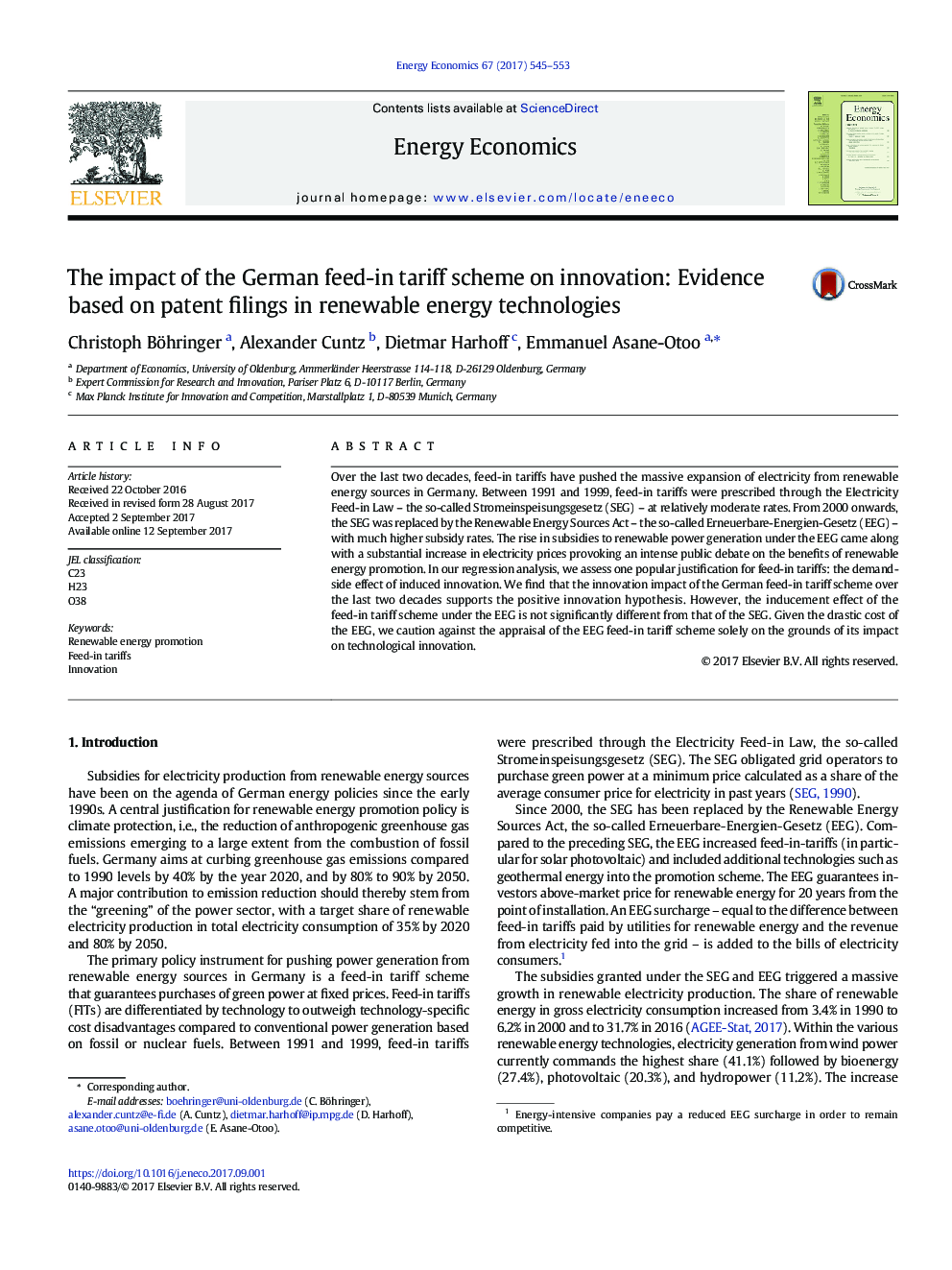| کد مقاله | کد نشریه | سال انتشار | مقاله انگلیسی | نسخه تمام متن |
|---|---|---|---|---|
| 5063587 | 1476697 | 2017 | 9 صفحه PDF | دانلود رایگان |
- Subsidies for renewables have been on the agenda of German energy policies since the early 1990s.
- A central policy justification for feed-in tariffs is innovation externalities.
- Empirical findings cast doubt on the additional positive innovation impact triggered by very generous feed-in tariffs.
- A cautious appraisal of the current feed-in tariff scheme on innovation grounds is recommended.
Over the last two decades, feed-in tariffs have pushed the massive expansion of electricity from renewable energy sources in Germany. Between 1991 and 1999, feed-in tariffs were prescribed through the Electricity Feed-in Law - the so-called Stromeinspeisungsgesetz (SEG) - at relatively moderate rates. From 2000 onwards, the SEG was replaced by the Renewable Energy Sources Act - the so-called Erneuerbare-Energien-Gesetz (EEG) - with much higher subsidy rates. The rise in subsidies to renewable power generation under the EEG came along with a substantial increase in electricity prices provoking an intense public debate on the benefits of renewable energy promotion. In our regression analysis, we assess one popular justification for feed-in tariffs: the demand-side effect of induced innovation. We find that the innovation impact of the German feed-in tariff scheme over the last two decades supports the positive innovation hypothesis. However, the inducement effect of the feed-in tariff scheme under the EEG is not significantly different from that of the SEG. Given the drastic cost of the EEG, we caution against the appraisal of the EEG feed-in tariff scheme solely on the grounds of its impact on technological innovation.
Journal: Energy Economics - Volume 67, September 2017, Pages 545-553
